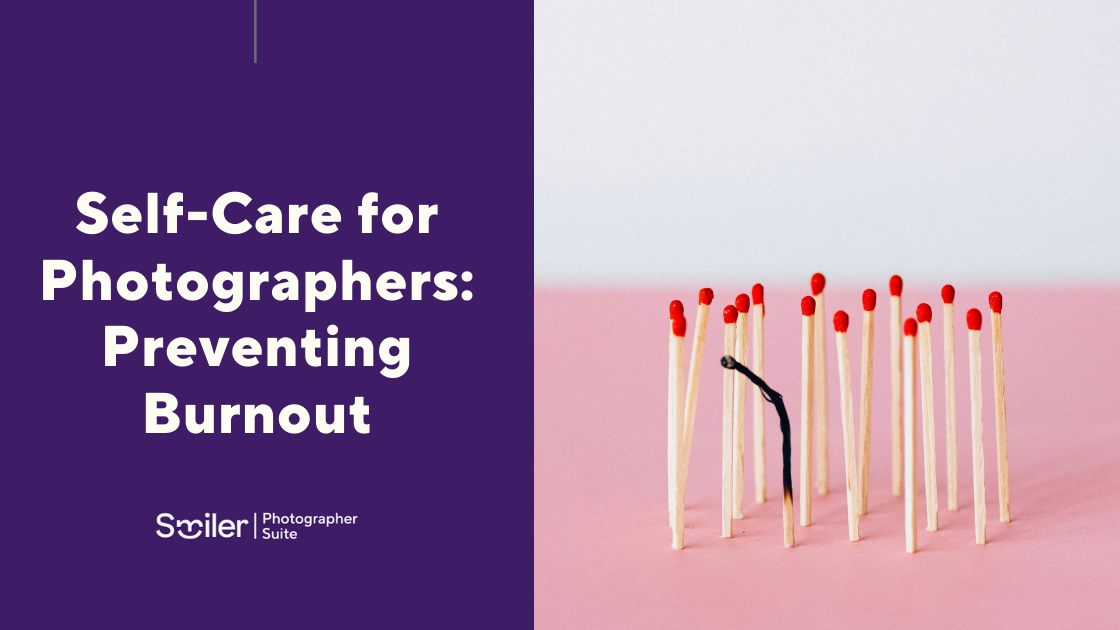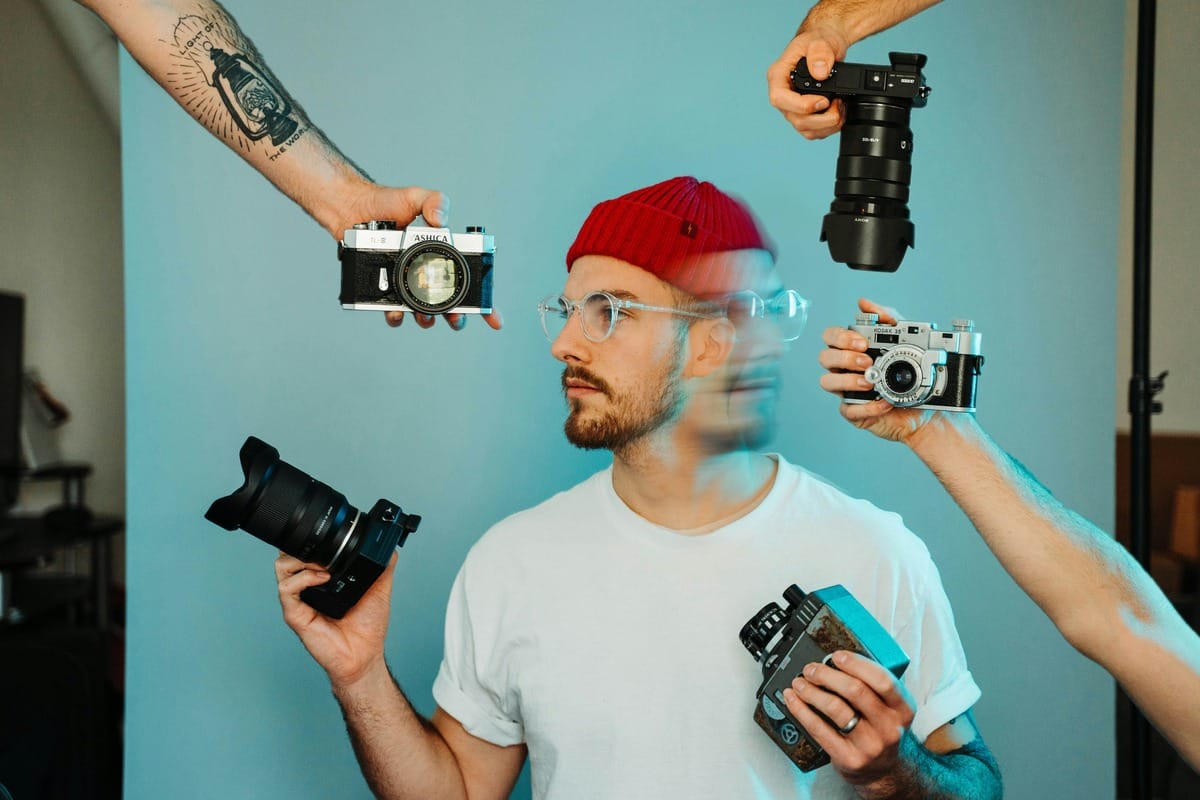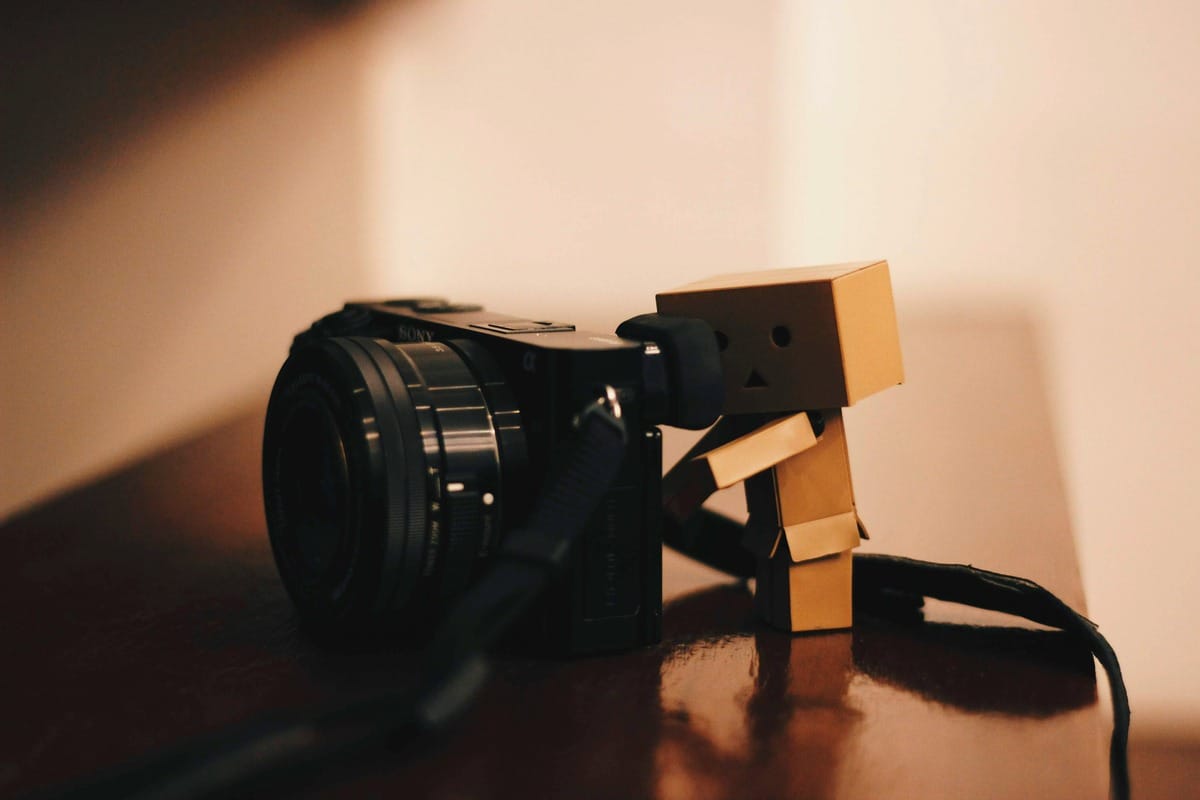Preventing Burnout: Self-Care Strategies for Photographers

For many, the prospect of turning a passion into a profession is often defined as a "dream job". While the life of making a living through a creative pursuit like photography might seem simple and fun, the reality is often much more complex. What many people don't realise is that once your passion turns into a profession, you're likely to go all in, which can put you at risk of pushing yourself to the limit. What's behind the stunning shots and the Instagram-worthy lifestyle is often a demanding reality.
The creative process is only a part of the job; the rest involves planning, strategic thinking, and continuous learning. Not to mention the very often long hours. While most photographers agree it is rewarding, the pressure to constantly produce your best work can lead to burnout. Thankfully, there are certain self-care strategies tailored specifically for photographers that can provide actionable steps and insights to keep your creative energy thriving.
Understanding Burnout
Photography as a creative outlet is very different from photography as a business. When you're running a photography business, you are not just out there taking photos; you are also running a full-fledged operation. A professional photographer is never just a hobbyist who got lucky. They are multifaceted entrepreneurs with expertise spanning finance, marketing, and business management.
Jack Irmas, a licensed psychotherapist and the founder of Beacon Psychotherapy explains that burnout and being overworked are often confused but are fundamentally different.
Burnout differs from being overworked in that burnout involves a profound sense of emotional exhaustion, detachment, and a feeling of ineffectiveness, often linked to deeper psychological and existential issues.
Being overworked, on the other hand, typically refers to having too many tasks or working excessively long hours, which can lead to physical and mental fatigue but does not necessarily involve the same level of emotional and existential distress that characterises burnout.
Both overworking and burnout are common challenges for photographers. However, burnout often stems from the pressure to constantly create, the unpredictable nature of the business, and the overwhelming weight of expectations. The World Health Organisation defines burnout as an "occupational phenomenon" characterised by exhaustion, cynicism, and decreased efficacy. If you're feeling like you might be experiencing burnout, there are some signs you can look out for.
- You're less enthusiastic about your day.
- You're noticing a decline in the quality of your work or productivity.
- You're delaying tasks, avoiding work, or having trouble meeting deadlines.
- You're feeling uninspired and struggling to come up with new ideas.
- You're easily irritated or impatient with everything or everybody.
- You can't sleep or you're sleeping excessively.
- You develop physical symptoms like headaches, stomach problems or muscle tension.
Natalie Korman, a wedding and elopement photographer based in Boise, Idaho, offers a unique perspective on burnout. As a full-time wedding and elopement photographer who is also immunocompromised and has endometriosis, she emphasises that in an industry focused on serving others, it's crucial to prioritise self-care. She describes burnout as:
"You feel mentally exhausted and no longer excited about your work. Your mentality shifts to "Let's get this over with" instead of "Can't wait to create/try something new!", you start to feel stuck and routine becomes disingenuous and you stop desiring to be innovative."

The Unique Challenges of Photographer's Burnout
Every profession has its challenges and a photographer's world is no different. These challenges can be more intense compared to other fields due to the creative, technical, and business pressures photographers face.
Knowing the root cause of burnout is essential for effective prevention and recovery. Pinpointing the areas that are causing imbalance can help you establish healthier boundaries, and lead to greater self-awareness and personal growth.
Creative Block
Let's be real, you can't conjure up a fresh perspective every day. The constant pressure to produce creative work often leads to stagnation and mental fatigue. Take a break from your project. Sometimes, a change of scenery or a different activity can spark new ideas.
Photographers often work in emotionally charged environments such as weddings, ceremonies, or even hospitals. The emotional toll of documenting these intense moments can lead to fatigue and emotional exhaustion, which are common culprits for creative blocks.
Irregular Hours and Overwork
Many photographers work irregular hours, including evenings and weekends, whether it is to meet client needs or capture the perfect light. This irregular work pattern can wreak havoc on sleep routines, leading to chronic fatigue, sleep deprivation, and increased stress levels.
Award-winning wedding photographer and videographer Craig Peterman says burnout in the photography industry is almost inevitable, but it's possible to slow it down or even get over it!
"Early in my career, I experienced burnout due to taking on too much work. I wanted to do anything and everything related to photography and videography. It just became too much and too difficult for me to manage, so I decided to set my focus on a couple of areas of mastery. By setting strict boundaries and focusing on a better work-life balance as well, I was able to find my niche and be very efficient at what I do."
Photographers often find themselves sacrificing personal time and well-being in pursuit of their passion. We've all seen the archetype: those who manage to balance work and life, often appearing to have more fun while achieving greater success. The secret lies in taking a step back. When you distance yourself from your business, you gain a fresh perspective. This allows you to identify areas for improvement with increased creativity.
Comparison Culture
Comparison is a thief of joy. Social media in particular can be a double-edged sword, inspiring and demoralising in equal measure. This can lead to feelings of inadequacy, self-doubt, and a never-ending pursuit of perfection.
It's important to always keep in mind that social media is essentially a carefully constructed facade. What you see is often a curated version of reality, and comparing yourself to these idealised portrayals can be detrimental to your professional growth. Creating your own definition of success is one way to combat this toxic behaviour. Always remind yourself to set personal goals and measure achievements based on your own standards, not those of others.
"To be a creative inherently means that everyone that demands your art will be interacting with you on a deeply personal level. My recommendation is to let that self-expression out. Never shy away from your brand of photography because someone else demands something different.
To balance creativity and the demands of the job can be an effort in self-sacrifice and ultimately a loss of passion for the project entirely. Make the art you want. Shoot the material you want - if you are skilled and true to your vision, the demand will come to you naturally. People are attracted to authenticity, allow yours to speak loudly."
- Tyler Jensen, Founder and owner of Tyler J Jensen Psychotherapy
Unpredictable Income
The inconsistent nature of photography income can create financial stress. Freelance photographers, in particular, face financial instability due to seasonal changes in their workloads and the need to continuously market themselves. However, you should not be stuck in a feast-or-famine cycle.
Creating a realistic budget helps with income fluctuations. Carefully considering pricing and value can also help optimise your earnings. If you're unsure about your pricing strategy, give our pricing and upselling eBook a read! It can help ensure your strategy aligns with your business goals.
Isolation
Last but not least, many photographers handle everything from shooting to client and business management alone. Working in solitude can lead to feelings of loneliness and lack of support. This isolation can exacerbate feelings of stress and lack of motivation.
Connecting with other photographers or giving back to the community can be a fulfilling way to break the monotony of working alone and offer new perspectives.

Avoiding Burnout
Maintaining a good sleep routine, regular exercise and healthy eating are undoubtedly essential. However, the relentless pace of your work can sometimes make these self-care fundamentals seem impossible to keep up with. Tiredness might deter you from hitting the gym, anxiety can disrupt your sleep, and stress might lead you to neglect balanced meals - creating a vicious cycle.
Dr Nick Bach, CEO of Grace Psychological Services, with vast expertise in helping creative professionals, especially photographers, recommends:
"I recommend that one set very clear boundaries between their work and personal life in order to manage stress. I believe it is important to ensure that one takes a break during the shooting, practices mindfulness, and does hobbies which are not linked to photography in any way.
Photographers should have time dedicated to creative work which is completely out of their client work. This is what will keep the passion for photography alive. For instance, it also allows a great deal of delegation to make the process efficient with the help of tools or software.
Finally, I believe that support networks of like-minded people who understand the pressures of the job are mandatory for photographers."
Set Professional Boundaries
Both personal and professional boundaries are essential for creating a healthy space for yourself. For photographers, setting professional boundaries involves defining healthy work hours, learning to say no, and understanding your limits. By establishing boundaries, you can protect your personal time, feel less overwhelmed, and maintain a healthy work-life balance.
But how can you establish these boundaries? Managing client expectations successfully is one way to do it. Detailed contracts outlining project scope, deliverables, timelines, and payment terms can help prevent misunderstandings and scope creep. Leave nothing to chance by communicating openly from the get-go to avoid misunderstandings.
Having an efficient workflow is key! Allocate specific time blocks for different tasks, such as shooting, editing, and client communication. Delegating tasks, or better yet, automating them can free up time and reduce workload.
Finally, protecting your personal space and availability is important. Limiting client contact by establishing specific communication channels and hours can save you from constant interruptions. Avoiding being on call 24/7 is crucial for maintaining a healthy work-life balance. As well as preventing overcommitment by learning to politely decline additional projects or requests that don't align with your goals or capacity.
Take Creativity Breaks
When you feel a creative block creeping up on you try engaging in different forms of artistic expression outside of photography. This can include painting, writing, or simply listening to music, which can stimulate creativity in different ways and provide a mental break from the routine stresses of running a photography business.
For those who can't find peace in other artistic expressions, a mini-vacation can also be a great option. You can set one hour for yourself to go for a walk, head to yoga, or lay in the sun – anything that helps you take a step back.
"Funnel at least 10% more creative energy into personal projects. Much like a chef has their "chef snack" you too must create for yourself. We cannot allow our creativity to only become a commodity or the soul of your creations may start to become hollow - which for a creative might be the single quickest way to burnout as a whole. "
- Tyler Jensen, Founder and owner of Tyler J Jensen Psychotherapy
Physical Health
Our physical and mental health are intricately linked so neglecting one often impacts the other. For photographers, long hours, irregular schedules, and the constant pressure to produce can take a toll on physical well-being. Physical activity acts as a stress reliever, boosts mood, improves sleep, and increases energy levels.
Kevin Mercier, a professional travel photographer, says photography can be physically demanding especially when carrying heavy equipment or hiking to remote locations. Emphasising the importance of physical well-being, he shares:
"I usually start my day with a morning routine that includes stretching, a healthy breakfast, and some quiet time to plan my day. I also incorporate regular breaks throughout my workday to recharge. Journaling helps me reflect on my experiences and set goals. At the end of the day, I disconnect from work by engaging in relaxing activities like reading or spending time with loved ones."
When you focus on time management and productivity, it can indirectly impact physical health in several ways. Focus on creating maximum impact while minimising time spent on tasks that tire you physically or mentally is a smart strategy. By reducing your admin tasks and using tools like the Smiler Photographer Suite to streamline your workflow, you can achieve more in less time. This approach not only increases efficiency but also prevents burnout by reducing mental load and creating time to recharge.
Wrapping up: Work Smarter, Not Harder
At Smiler, we know it can be tough juggling creativity with the pressures of running a business. You simply can't pour from an empty cup. That's why taking care of yourself isn't just a luxury, it's a must. From finding time to recharge to looking after your body and mind, it all matters.
That's why we empower photographers to achieve an efficient workflow that works for them, saving them both time and sanity. With Smiler, you can centralise your operations in one convenient space—from managing your calendar and delivering photos to processing payments, all integrated seamlessly into one platform.

With an automated and simplified workflow, you can devote your energy to creative pursuits and personal life, leading to a fulfilling work-life balance.
We hope that by integrating the strategies we've explored today, you can break the cycle of being too tired to exercise, too anxious to sleep, and too stressed to eat well. Each step can help maintain your physical health and boost your creative output, keeping you at the top of your game both personally and professionally.

